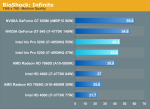Chewy509
Wotty wot wot.
Hi Guys,
I'll start by stating this is not an attempt to start a flamewar, but more of an interest in the current Intel vs AMD situation, particularly at the higher end of the scale.
With the buzz of Haswell now out, most are building Haswell based systems. However is anyone here building AMD based systems based in the FX-83xx series? While the FX-83xx doesn't have the same raw performance as the Intel SB/IB/HW offerings at the top end, price competitiveness at similar performance at the mid level favours AMD. Or is this more about quality of the motherboard as well? The CPU might be good, but you need to spend $$$ on a decent board, in which case it's cheaper just to get an Intel CPU and motherboard combination anyway.
I certainly see extreme value in the AMD A6/A10 APUs at the lower and mid range, decent CPU coupled with excellent gfx, but was wondering about the level above that? Or is no-one buying at the upper-mid level anymore? Heading straight for the top end stuff?
Part of this is also looking at my next upgrade. While my current system still suites my needs, it's now 3.5yrs old and worried about hardware failure and would like at least a plan on what to do if there is a failure. (I would upgrade the RAM and to a SSD, but for the price of just a RAM upgrade I can get a new system and still doesn't negate a 3.5yr old CPU, motherboard, PSU).
As I said, more out of interest than anything.
PS. The AMD FX-9590 has a turbo mode of 5GHz...
http://www.anandtech.com/show/7066/amd-announces-fx9590-and-fx9370-return-of-the-ghz-race
I'll start by stating this is not an attempt to start a flamewar, but more of an interest in the current Intel vs AMD situation, particularly at the higher end of the scale.
With the buzz of Haswell now out, most are building Haswell based systems. However is anyone here building AMD based systems based in the FX-83xx series? While the FX-83xx doesn't have the same raw performance as the Intel SB/IB/HW offerings at the top end, price competitiveness at similar performance at the mid level favours AMD. Or is this more about quality of the motherboard as well? The CPU might be good, but you need to spend $$$ on a decent board, in which case it's cheaper just to get an Intel CPU and motherboard combination anyway.
I certainly see extreme value in the AMD A6/A10 APUs at the lower and mid range, decent CPU coupled with excellent gfx, but was wondering about the level above that? Or is no-one buying at the upper-mid level anymore? Heading straight for the top end stuff?
Part of this is also looking at my next upgrade. While my current system still suites my needs, it's now 3.5yrs old and worried about hardware failure and would like at least a plan on what to do if there is a failure. (I would upgrade the RAM and to a SSD, but for the price of just a RAM upgrade I can get a new system and still doesn't negate a 3.5yr old CPU, motherboard, PSU).
As I said, more out of interest than anything.
PS. The AMD FX-9590 has a turbo mode of 5GHz...
http://www.anandtech.com/show/7066/amd-announces-fx9590-and-fx9370-return-of-the-ghz-race

